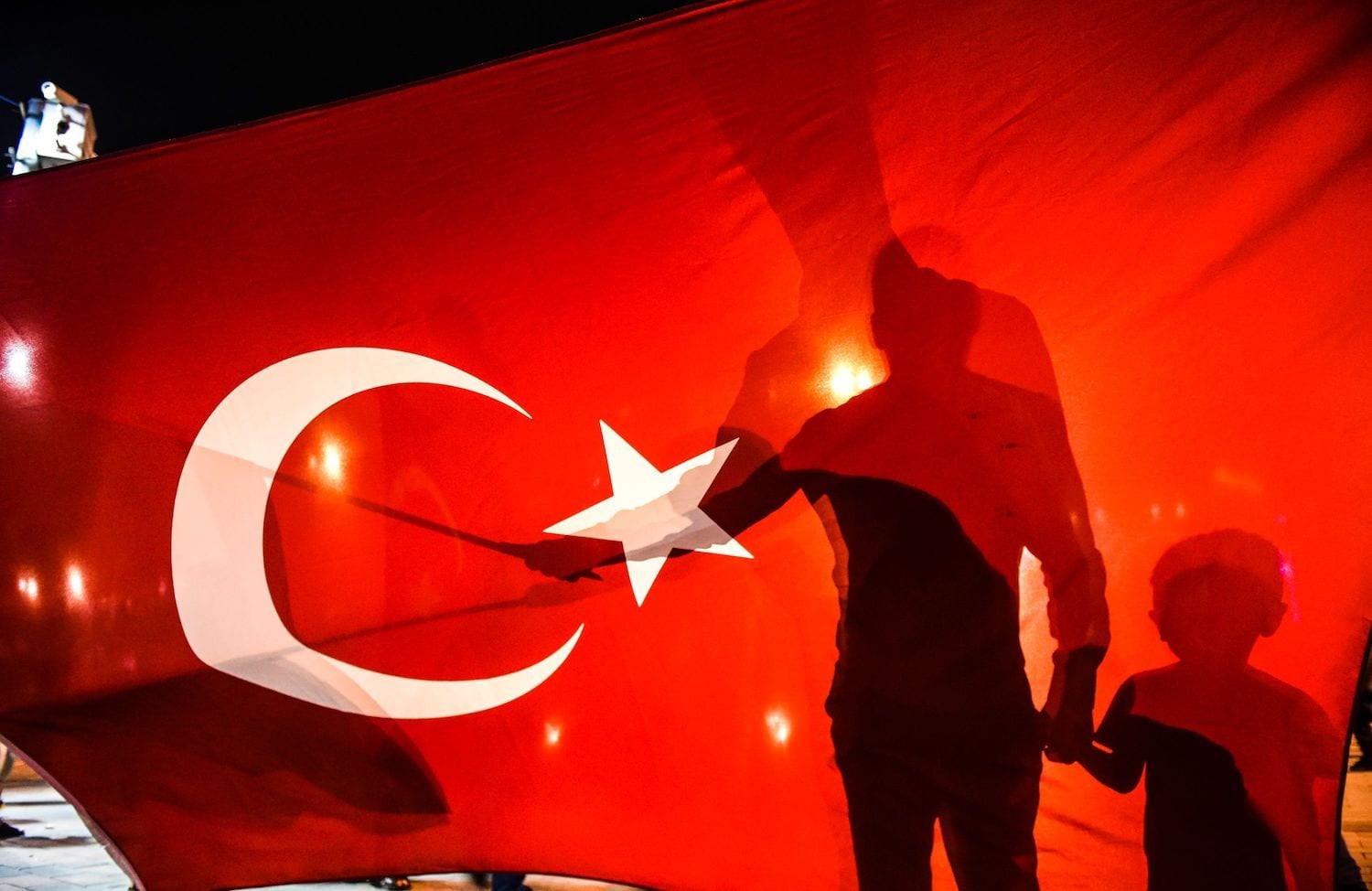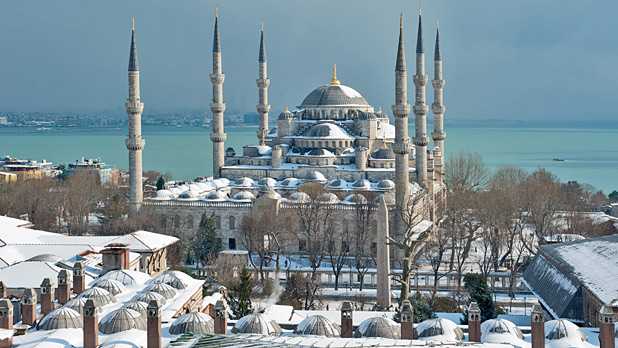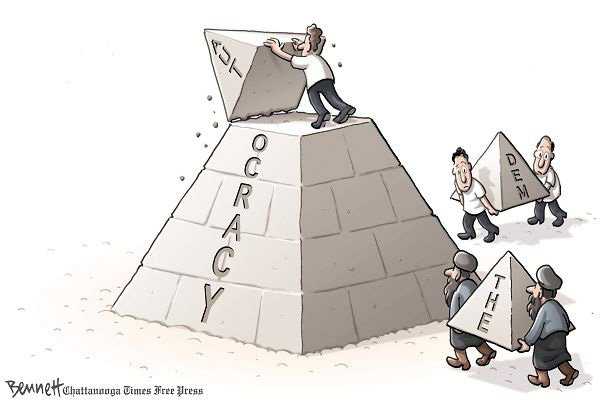[Guardian – 6.7.2008]
Evidence of a conspiracy to overthrow the pro-Western Islamist government has laid bare the resentment of the country’s secular elite in a divided country, reports Robert Tait in Istanbul
A pro secular demonstrator chants slogans against the government in Istanbul. Photograph: Tolga Bozoglu/EPA
In a recent declaration, Turkish nationalists identified what they described as the ‘six arrows’ of the country’s proper identity: nationalism, secularism, statism, republicanism, populism and revolutionism. Judging by the events of last week, it is the last arrow – revolution – that has preoccupied the more radical in recent months.
In an extraordinary raid which led to the arrests of 21 people allegedly tied to Ergenekon, a shadowy nationalist grouping, police uncovered documents that revealed plans for a sustained campaign of terror and intimidation against the Islamist government due to begin this week. A perfect storm of disruption was to be whipped up, beginning with a groundswell of popular protest, followed by a wave of assassinations and bombings, culminating in an economic crisis and army coup. Turkey’s moderate Islamist government would be ousted in favour of a right-wing secular dictatorship. The documents appeared to identify a 30-member assassination squad targeting judges and other prominent figures.
The episode is only the latest trauma to convulse the Turkish body politic. As the raids took place, the AKP government, led by Prime Minister Recep Tayyip Erdogan and President Abdullah Gul, was defending itself in court from accusations that it is trying to transform Turkey into a hardline Islamic state. If the AKP fails to convince the judges, 71 leading figures in the party, including Erdogan and Gul, risk being banned from politics for five years. Increasingly, Turkish democracy appears vulnerable to a vicious power struggle between a secular establishment and the affluent but religiously conservative middle class.
According to Professor Soli Ozel, of Istanbul’s Bilgi University, the more fanatical nationalists are determined to bring down the AKP, which despite its Islamist origins is pro-Western and pro-EU. ‘They are trying to pump up a modern urban Turkish nationalism with a racist tinge,’ said Ozel. ‘They are anti-Western and want to ally Turkey with Russia, China and even Iran. It’s very schizophrenic and full of paradoxes.’
The Ergenekon group is named after a legendary mountain in Asia where the ancient Turks are said to have taken refuge from the Mongols. Those arrested in dawn raids in Istanbul, Ankara, Antalya and Trabzon included two recently retired army generals, Sener Eruygur and Hursit Tolon. Eruygur, a former head of the paramilitary gendarmerie for internal security, is chairman of the Kemalist Thought Association, a group dedicated to Ataturk’s ideals of modernism, which include subjugating religion to the state. He is believed to have played a central role in two previous failed coup attempts against the AKP, which was re-elected in a landslide last July. Nationalist lawyers, prominent secular journalists, far-right politicians and even a mafia boss have also been detained.
The inquiry began after a cache of hand grenades was found in an Istanbul slum in June last year. Investigators claim to have since uncovered evidence of a motley coalition of secular nationalists colluding in a catalogue of past atrocities, including bomb attacks, a grenade attack on a newspaper and the murder last year of a Turkish-Armenian journalist, Hrant Dink. The alleged aim was to destabilise the AKP government by creating a climate of chaos.
Critics were quick to question the authenticity of the documents and accuse the AKP of instigating a witchhunt against its opponents, using its friends in the police. Nevertheless the detention of two former senior army commanders carried huge symbolic weight in a country where the military has always played the decisive political role since Ataturk established the modern Turkish state in 1923.
So, too, did the timing. The arrests came hours before the chief prosecutor, Abdurrahman Yalcinkaya, appeared before the constitutional court in Ankara to argue that the AKP should be closed for allegedly undermining Turkey’s secular system. The case against the AKP is contained in a 162-page indictment accusing the AKP of trying to create an Islamic state, a charge it denies.
Given the conspiratorial game that Turkish politics has become, cynics are suggesting that the Ergenekon case will be used as a bargaining counter to ensure the survival of the AKP.
The constitutional court had been widely expected to close the party when it delivers its verdict, probably next month. But with prosecutors saying they are ready to press terrorism-related charges against up to 60 suspects in the Ergenekon case, some suspect a deal has already been struck with moderate army commanders to try to avoid closure.
Eruygur’s arrest inside a military residential compound may provide a clue, since many believe it could not have happened without army top brass approval. Erdogan recently met General Ilker Basbug, due to take over soon as head of the army. Basbug appealed for calm after last week’s arrests, but avoided condemning them. ‘We all have to be acting with more common sense, more carefully and more responsibly,’ he said.
‘The arrests were a pretty coup for the AKP,’ said Professor Ozel. ‘Many people think this couldn’t have happened without the tacit approval of the military, at least from the legalists within it. If there is a tacit agreement with the military and they are working with the Prime Minister, you can expect that the court has decided that the AKP is not such a big threat after all.’
Whatever the outcome of the forthcoming battle of wills between Turkey’s nationalists and Islamists, the latest tremors in Turkey’s political landscape have revealed the enduring shadow of the country’s ‘deep state’. Secretive nationalist elements in the security apparatus are believed to have been behind a host of atrocities against the Kurds and other minorities, including the Alevis, a heterodox Islamic sect, during the 1990s. But, according to Ozel, if the Ergenekon trial ends in prosecutions ‘maybe that kind of nationalism in Turkey is going to weaken’.
Who’s who in Turkey
The AKP: In power for a year. Islamist, but has so far pursued a pro-Western agenda. In favour of Turkey becoming a member of the EU. Attempts to raise profile of Islam in Turkish society have led its opponents to accuse it of flouting Turkey’s secular constitution.
Republican People’s party: The main parliamentary opposition. Secular and nationalist. Seen as hostile to the EU.
The PKK: Outlawed Kurdish separatist party
The judges: Trial involving AKP could lead to party being disbanded for instituting Islamic state.
The military: Staged coup in 1980. Widely seen as responsible for fall of Islamist government in 1997






